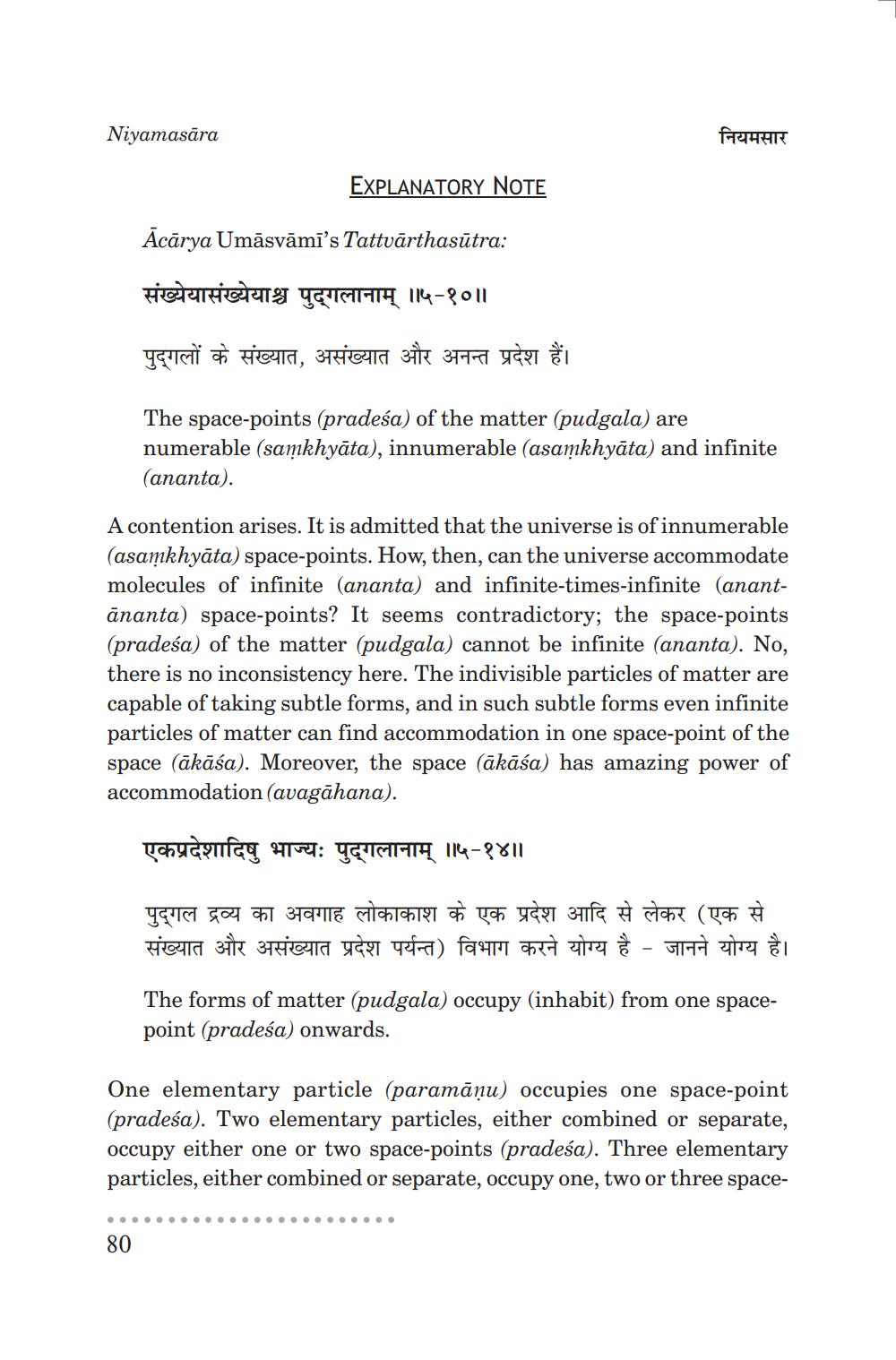________________
Niyamasāra
नियमसार
EXPLANATORY NOTE
Ācārya Umāsvāmi's Tattvārthasūtra:
संख्येयासंख्येयाश्च पुद्गलानाम् ॥५-१०॥
पुद्गलों के संख्यात, असंख्यात और अनन्त प्रदेश हैं।
The space-points (pradeśa) of the matter (pudgala) are numerable (samkhyāta), innumerable (asamkhyāta) and infinite (ananta).
A contention arises. It is admitted that the universe is of innumerable (asamkhyāta) space-points. How, then, can the universe accommodate molecules of infinite (ananta) and infinite-times-infinite (anantānanta) space-points? It seems contradictory; the space-points (pradeśa) of the matter (pudgala) cannot be infinite (ananta). No, there is no inconsistency here. The indivisible particles of matter are capable of taking subtle forms, and in such subtle forms even infinite particles of matter can find accommodation in one space-point of the space (ākāśa). Moreover, the space (ākāśa) has amazing power of accommodation (avagāhana).
एकप्रदेशादिषु भाज्यः पुद्गलानाम् ॥५-१४॥
पुद्गल द्रव्य का अवगाह लोकाकाश के एक प्रदेश आदि से लेकर (एक से संख्यात और असंख्यात प्रदेश पर्यन्त) विभाग करने योग्य है - जानने योग्य है।
The forms of matter (pudgala) occupy (inhabit) from one spacepoint (pradeśa) onwards.
One elementary particle (paramāņu) occupies one space-point (pradeśa). Two elementary particles, either combined or separate, occupy either one or two space-points (pradeśa). Three elementary particles, either combined or separate, occupy one, two or three space
..
.
...................
80




